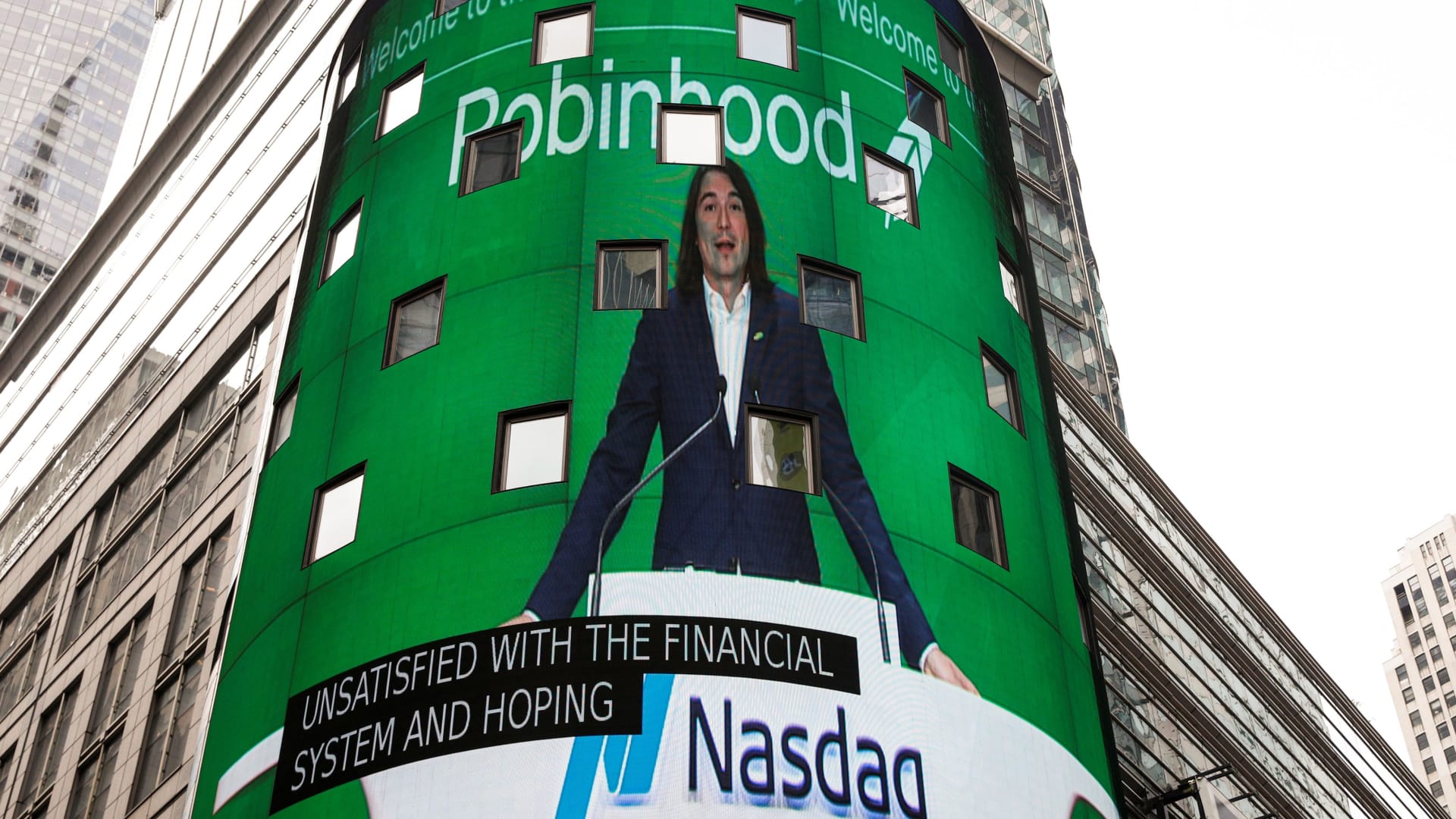
Robinhood CEO Vlad Tenev said Wednesday that the retail brokerage is not looking to be acquired despite announcing major layoffs after another quarter of shrinking active users.
“In one word: No,” Tenev said on an investor call when asked about potentially being bought by another firm. “I think we’re in a great position as a stand-alone company. I love us as a stand-alone company.”
In May, FTX CEO Sam Bankman-Fried revealed a stake in Robinhood, spurring speculation about a potential takeover bid from the crypto-focused brokerage. Bankman-Fried has since said FTX is not looking to buy Robinhood outright.
Tenev did say that Robinhood was on the lookout for potential acquisitions of its own. The company reported $6 billion in cash on its balance sheet at the end of the quarter.
“We actually see opportunities, particularly in this market environment, to leverage the balance sheet that we have … to acquire companies that accelerate our roadmap,” Tenev said.
The Robinhood investor call came a day after the company announced it was laying off 23% of its workforce. The company also reported a smaller-than-expected loss for the second quarter, but monthly active users declined and revenue was down more than 40% year over year.
Shares of Robinhood rose 11.7% on Wednesday following the layoff announcement. Several Wall Street analysts said the company’s cost-cutting efforts could be a boost to the stock.
Robinhood cut its full-year expense guidance by roughly $290 million, which includes about $70 million decline in expected share-based compensation. Tenev said that the company plans to have positive adjusted EBITDA — a measure of profitability that excludes certain costs such as interest and taxes — by the end of the year.
The company pointed to rate hikes from the Federal Reserve as a source of revenue growth in the form of interest. CFO Jason Warnick estimated that every one-quarter of a percentage point rate hike translates into about $40 million of annualized revenue for Robinhood.
“The precise benefit of rate hikes will depend on how balances and customer rates vary over time,” Warnick said.
The CFO also said Robinhood’s assets under custody rose back above $70 billion in July after declining in the second quarter.
Despite Wednesday’s rally, Robinhood’s stock is still down nearly 42% for the year and more than 70% from where its IPO was priced last year.






















